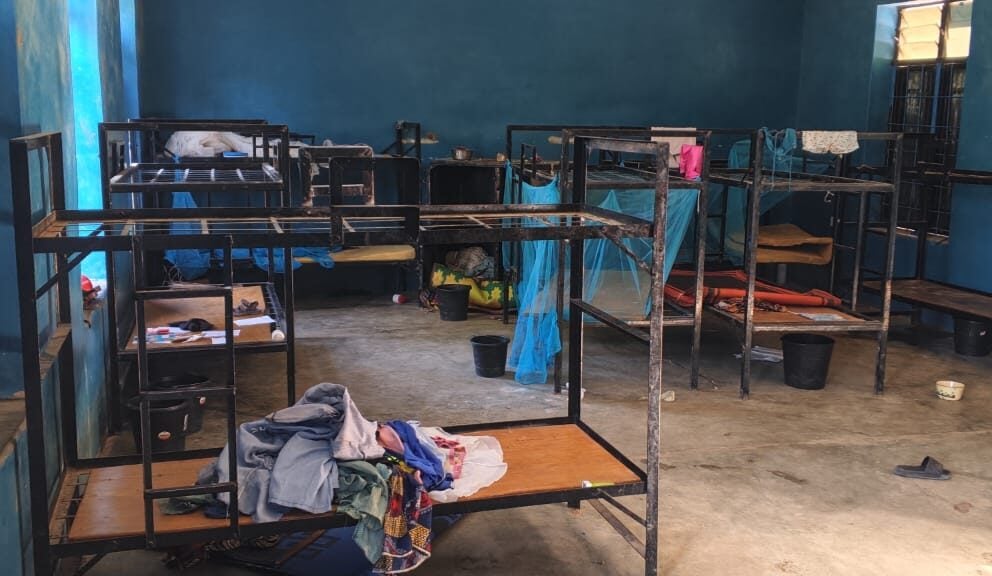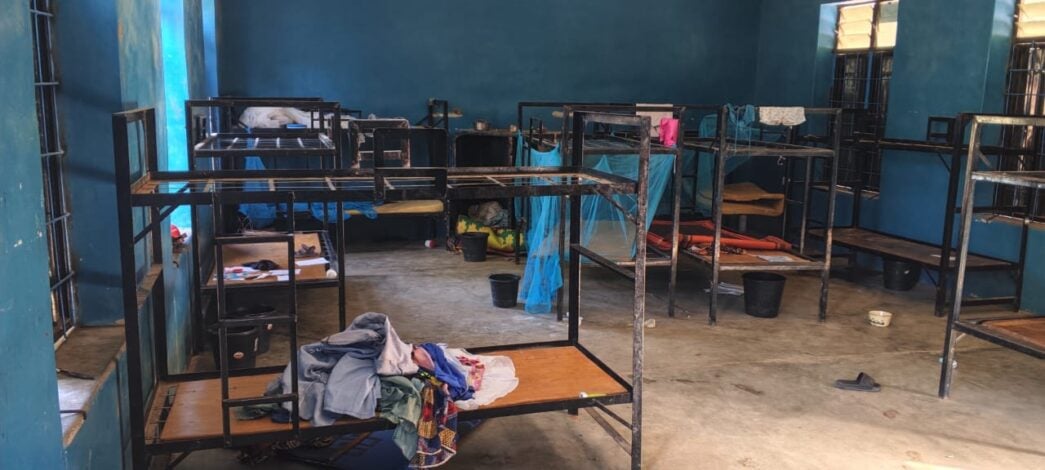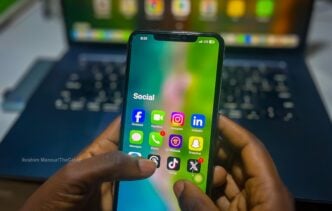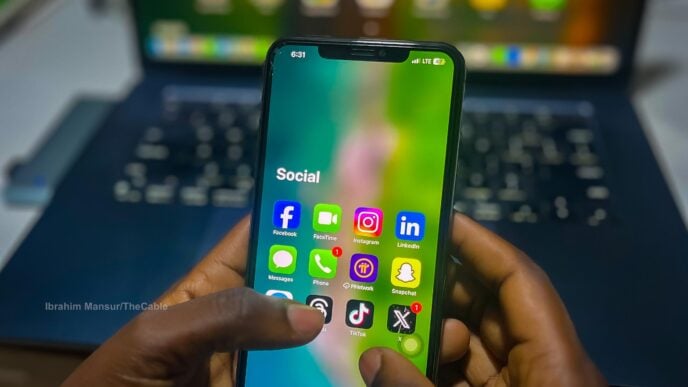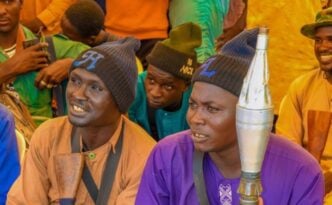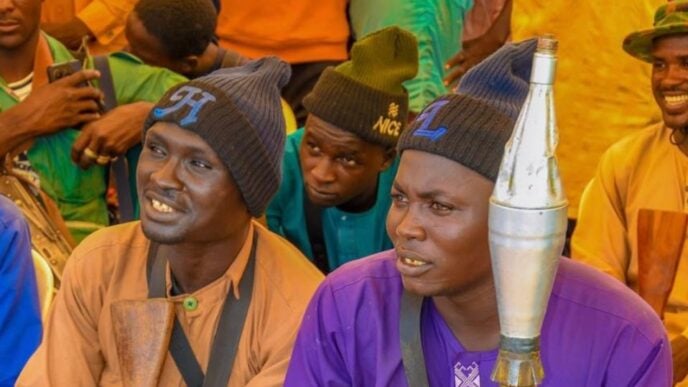A dormitary in St Mary School Niger state, where schoolchildren were abducted
BY ABDULLAHI MOHAMMED
Nigeria is once again in the headlines, this time for a tragic surge in insecurity and a disturbing resurgence of mass school abductions. This grave situation can be likened to the 1972 fictional novel “One Week, One Trouble” by Anezi Okoro, which tells the story of a young boy, Wilson Tagbo, navigating the trials of starting school and the challenges of boyhood. Unfortunately, unlike Wilson, who found his way through his challenges, Nigeria today sits uncomfortably on a perilous precipice, struggling to find effective solutions to multiple, intertwined crises—ranging from US genocidal claims to the resurgence of Boko Haram/ISWAP, the IPOB menace, and the closure of schools, especially across northern Nigeria.
Amidst these tumultuous challenges—the harrowing weekly abductions of schoolchildren, such as those in GGCSS Maga, Kebbi, and St. Mary’s Catholic School in Niger state—there emerges a dangerous and poisonous trend: conspiracy theories. These narratives serve as escape routes, deflections, and blame games that cloud our understanding of the deep-rooted issues Nigeria faces. All too familiar from the tragic Chibok school abduction of 2014, this path of denial and blame led to catastrophic consequences during former President Jonathan’s tenure. Yet somehow, in 2025, the same conspiracy narratives persist.
Some allege that the northern establishment is unhappy with a southern president, Bola Tinubu—claiming they would go to any lengths to destabilise his administration. This claim is not only illogical but deeply insensitive. The innocent girls—whose only offence was seeking knowledge—cannot justly be pawns in a political game concocted by so-called northern elites. Such shallow thinking insults the countless victims of insecurity and is an affront to humanity.
Advertisement
Those who spin these narratives to deflect blame are doing a disservice to the nation and lack empathy, emotional intelligence, and morality. Their motives are transactional, often benefiting from government patronage, making them unfit to speak for the people. Meanwhile, escapists who deny the root causes are confronted daily with the harsh realities of northern Nigeria’s decline: long years of ungoverned destruction by various actors. Uneducated ulamas, unqualified tutors, self-glorified gatekeepers of knowledge and morality, and selfish custodians of tradition have all played damaging roles. The dysfunctional education system, combined with a sense of ethnic superiority and power struggles within northern society, has generated fertile ground for insecurity to flourish.
The origins of banditry and kidnapping in northwest Nigeria can be traced back to disputes over land, the major source of wealth. Farmers, who year after year cultivated their lands, were forced to vacate them for roving cattle herders. What began as disagreements escalated into full-scale conflict, aggravated by government neglect and ungoverned spaces that criminal elements exploited. This created a breeding ground for violence.
Yet, the government alone should not bear all the blame. What about parents, communities, and society at large? More deeply, what role have self-appointed custodians of faith and morality played in either easing or inflaming these conflicts? Familial ties and kinship loyalties have exacerbated tensions, especially between Fulani aristocrats and sedentary Hausa farmers. While powerful Fulani oligarchs ignored the growing conflict, the Hausa farmers organised vigilante groups called Yan Sa Kai to protect themselves, effectively sparking a civil war between Hausa and Fulani communities—an uncomfortable truth many avoid discussing.
Advertisement
This crisis is a creation born of neglect and denial. We must reject conspiracy theorists who cite shadowy hands of foreign agencies like the CIA, MI6, Mossad, or the French DGSE as puppeteers of Nigerian insecurity. While foreign arms trades may fuel the violence, the root causes are decades of self-inflicted wounds: irresponsible policies and elite power struggles within northern Nigeria.
Peace efforts with armed bandit groups in recent years, particularly in Katsina and other northwest states, have proven futile. These armed groups have only grown bolder after every so-called peace deal. The argument by figures like Sheikh Gummi—that banditry stems from systemic neglect—only holds partial truth. All Nigerians suffer neglect in various forms, but very few resort to violence against their fellow citizens. We have been reduced to this state by those who falsely claim ownership of knowledge, faith, and morality.
Everyone has a responsibility: citizens, government, and communities. We must live by the values we preach—love openly and reject hate disguised under cultural or ethnic claims. No ethnic group—Hausa, Tiv, Fulani, or Berom—should impose its will on others. The government must also be proactive and prepared rather than waiting for foreign politicians like Trump, Riley Moore, or Ted Cruz to intervene and stir the security sector awake.
The recent abduction of over 300 schoolchildren and teachers in Niger state alone, surpassing even the tragic Chibok abduction numbers, underscores the urgency of the crisis. This mass kidnapping reflects not just a security failure but a moral failure of all involved stakeholders, from educational institutions ignoring warnings to security agencies and community leaders.
Advertisement
In conclusion, our pursuit of peace and security must be founded on truth, responsibility, and unity. We must confront these challenges squarely, resist divisive conspiracies, and rebuild institutions with integrity and foresight. Only then can Nigeria move forward, ensuring its children no longer fear for their lives while seeking knowledge. This is the collective duty of all Nigerians who cherish humanity and the future of this great nation.
Abdullahi D Mohammed is the director of the Initiative for Concerned Citizens Against Drug Abuse and Community Awareness. He writes from Kano via [email protected]
Views expressed by contributors are strictly personal and not of TheCable.
